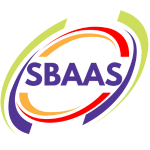5 Compliance Risks SMEs Can’t Ignore
Financial compliance is a critical area in which Australian SMEs must exercise diligence. The regulatory landscape is evolving, with increased scrutiny on financial reporting, taxation, and anti-money laundering (AML) obligations.
Key Challenges
- Complex Taxation Laws: Navigating the intricacies of the Australian tax system, including GST, PAYG, and superannuation contributions, can be daunting.
- AML Regulations: Businesses must implement robust AML policies to detect and prevent financial crimes.
- Financial Reporting Standards: Adhering to Australian Accounting Standards and ensuring accurate financial statements is essential.
Solutions
- Regular Audits: Conduct internal audits to identify and rectify discrepancies.
- Professional Advice: Engage financial advisors or accountants familiar with SME operations.
- Training: Ensure staff are trained in financial compliance requirements.
Risk #2: HR and Industrial Relations Compliance
Human Resources (HR) and Industrial Relations (IR) compliance is vital for maintaining a fair and lawful workplace. Non-compliance can lead to legal disputes, financial penalties, and reputational damage.
Key Challenges
- Fair Work Act Compliance: Understanding and adhering to the Fair Work Act 2009, including National Employment Standards and Modern Awards.
- Workplace Policies: Developing clear policies on discrimination, harassment, and workplace conduct.
- Record-Keeping: Maintaining accurate employee records, including contracts, timesheets, and leave entitlements.
Solutions
- Policy Development: Create comprehensive HR policies aligned with legal requirements.
- Training Programs: Implement regular training for management and staff on HR compliance.
- Consultation: Seek advice from HR professionals or legal experts to ensure compliance.
Risk #3: Workplace Health and Safety (WHS)
Ensuring a safe working environment is a legal obligation and essential for employee well-being and productivity.
Key Challenges
- Hazard Identification: Recognising and mitigating workplace hazards.
- Safety Procedures: Implementing and enforcing safety protocols.
- Incident Reporting: Establishing clear processes for reporting and addressing incidents.
Solutions
- Risk Assessments: Conduct regular assessments to identify potential hazards.
- Safety Training: Provide ongoing training to employees on safety practices.
- Compliance Tools: Utilise tools and resources to manage WHS obligations effectively.
Risk #4: Data Security and Privacy
In an increasingly digital world, protecting sensitive data is paramount. Data breaches can result in significant financial losses and damage to reputation.
Key Challenges
- Cyber Threats: Due to perceived vulnerabilities, SMEs are often targets for cyberattacks.
- Privacy Regulations: Complying with the Privacy Act 1988 and Australian Privacy Principles.
- Data Management: Ensuring secure storage and handling of personal and sensitive information.
Solutions
- Security Measures: Implement firewalls, antivirus software, and encryption.
- Staff Training: Educate employees on data security best practices.
- Regular Updates: Keep systems and software updated to protect against vulnerabilities.
Risk #5: Environmental Compliance
Environmental regulations are becoming increasingly stringent, and SMEs must meet their obligations.
Key Challenges
- Waste Management: Proper disposal and management of waste materials.
- Resource Usage: Monitoring and reducing energy and water consumption.
- Regulatory Compliance: Adhering to local and national environmental laws and standards.
Solutions
- Sustainability Plans: Develop and implement environmental management plans.
- Compliance Audits: Regularly assess environmental practices and compliance.
- Employee Engagement: Encourage staff to participate in sustainability initiatives.
How to Manage Compliance Risks
Effectively managing compliance risks involves a proactive and structured approach.
Steps to Take
- Risk Assessment: Identify areas of potential non-compliance within your business operations.
- Policy Development: Establish clear policies and procedures to address compliance requirements.
- Training and Education: Ensure all employees understand their roles in maintaining compliance.
- Monitoring and Review: Regularly review and update compliance measures to adapt to changing regulations.
- Seek Expert Advice: Consult with professionals to stay informed about legal obligations and best practices.
How to Mitigate Compliance Risks
Mitigating compliance risks requires ongoing effort and commitment.
Strategies
- Integrate Compliance into Business Culture: Foster a culture where compliance is a shared responsibility.
- Utilise Technology: Implement compliance management systems to streamline processes.
- Stay Informed: Keep abreast of legislative changes and industry developments.
- Regular Audits: Conduct internal and external audits to identify and address compliance gaps.
Final Word
Navigating the complex landscape of compliance is a significant challenge for Australian SMEs. However, by understanding the key risks and implementing effective strategies, businesses can protect themselves from legal and financial repercussions. Proactive compliance management safeguards your business and enhances your reputation and operational efficiency.
For tailored advice and support in managing your compliance obligations, consider exploring SBAAS’s Governance and Risk Consulting Services. To learn more about our approach and how we can assist your business, visit our About Us page or Book a conversation.
Sources
- Australian Government. (2025). Privacy Act 1988.
- Fair Work Ombudsman. (2025). Fair Work Act 2009.
- Safe Work Australia. (2025). Work Health and Safety Laws.
- Australian Securities and Investments Commission. (2025). Environmental Compliance.
- Australian Cyber Security Centre. (2025). Cyber Security for Small Business.
- SBAAS. (2025). Fair Work Compliance: Avoid Costly Mistakes.

Eric Allgood is the Managing Director of SBAAS and brings over two decades of experience in corporate guidance, with a focus on governance and risk, crisis management, industrial relations, and sustainability.
He founded SBAAS in 2019 to extend his corporate strategies to small businesses, quickly becoming a vital support. His background in IR, governance and risk management, combined with his crisis management skills, has enabled businesses to navigate challenges effectively.
Eric’s commitment to sustainability shapes his approach to fostering inclusive and ethical practices within organisations. His strategic acumen and dedication to sustainable growth have positioned SBAAS as a leader in supporting small businesses through integrity and resilience.
Qualifications:
- Master of Business Law
- MBA (USA)
- Graduate Certificate of Business Administration
- Graduate Certificate of Training and Development
- Diploma of Psychology (University of Warwickshire)
- Bachelor of Applied Management
Memberships:
- Small Business Association of Australia –
International Think Tank Member and Sponsor - Australian Institute of Company Directors – MAICD
- Institute of Community Directors Australia – ICDA
- Australian Human Resource Institute – CAHRI
Our Consulting Services

Management Consulting
Compliance & Risk

Professional Writing Services
Consistency in Communication

Small Business Consulting
Sustainable Businesses

Start-ups
Set-up for Success
Further reading

Do You Need a Business Consultant or Just Better Execution?
Do You Need a Business Consultant or Just Better Execution? Every business reaches a point where progress slows. Revenue plateaus. Margins tighten. Teams stay busy,

Can a Business Consultant Replace an Internal Manager?
Can a Business Consultant Replace an Internal Manager? When a leadership gap appears, most businesses default to recruitment. The logic seems obvious. A vacant role

What Results Should You Expect From a Business Consultant?
What Results Should You Expect From a Business Consultant? Hiring a consultant is not an expense. It is a strategic investment in performance, clarity, and

Why Businesses Stall Without External Perspective
Why Businesses Stall Without External Perspective Capable leaders run capable businesses. They work long hours, understand their markets, and care deeply about performance. Yet many

The Repetition Tax
Every organisation pays a “repetition tax”, time lost to checking forms, reconciling data, drafting reports, and chasing missing details. You can reduce that tax by building AI that fits your workflows, your data, and your risk profile. This guide explains how to design custom AI systems for businesses that improve consistency and speed while keeping humans fully accountable.

How to Choose the Right Business Consultant for Your Business
How to Choose the Right Business Consultant for Your Business Selecting external expertise can be one of the most commercially significant decisions a business leader
SBAAS Events
What our clients are saying about us
Posted onTrustindex verifies that the original source of the review is Google. Eric and Trudi recently wrote a tender for me and the experience was amazing. I went into the process in a state of complete overwhelm. Eric was able to break it down into achievable chunks for me, and reassure me that I had a great service and business model to offer. I came out the other end of the process with all of my business policies, a better understanding of my offer, and a foundation to launch all future tender applications. Eric took all of my information and turned it into a pretty package that I could market.Posted onTrustindex verifies that the original source of the review is Google. SBAAS were fantastic to work with on a detail-heavy tender with a tight turnaround. Their team helped us shape and compile our content to deliver a strong, high-quality submission. Highly recommend SBAAS to anyone looking for strategic support with tender development, with a touch of good humour along the way.Posted onTrustindex verifies that the original source of the review is Google. We engaged SBAAS to support the development of a complex government tender and couldn’t be happier with the outcome. SBAAS' professionalism, attention to detail, and ability to quickly understand our business and translate that into a compelling, well-structured submission were exceptional. They were responsive, collaborative, and a genuine extension of our team. Highly recommend for anyone looking for strategic, high-quality bid and tender writing support.Posted onTrustindex verifies that the original source of the review is Google. Eric and Team go above and beyond. They do an excellent job with researching to get everything that is legally required for Policies and QMS. Would recommend them them to everyone especially all the bookkeepers and accountants. Thank you guys, and extreme job. Love you work as always. 😀Posted onTrustindex verifies that the original source of the review is Google. Extremely professional and far exceeded by expectations. I will definitely be using their services again and highly recommend them. They have a spirit of excellence in everything they do which shines through when dealing with them.Posted onTrustindex verifies that the original source of the review is Google. Impressive consulting experience! The team is highly professional, with a hands-on approach that adds real value. Their dedication and expertise truly stand out. Highly recommended!Posted onTrustindex verifies that the original source of the review is Google. Super knowledgable company that provides great advice and support for small business. Super friendly, highly recommend.Posted onTrustindex verifies that the original source of the review is Google. As a new business owner, I recognised the value in seeking a business coach to help me achieve significant goals. After a disappointing experience with a previous coach, I was initially hesitant to try again. However, after seeing SBAAS's complimentary action plan, I thought there was no harm in investigating. Eric quickly identified gaps in my systems, and through a few targeted adjustments, I saw an immediate increase in both leads and sales. These changes also improved profitability—highlighting a major issue I hadn’t been aware of, as my previous coach’s guidance had me working for less than $7 per hour! I look forward to continuing working with Eric.
